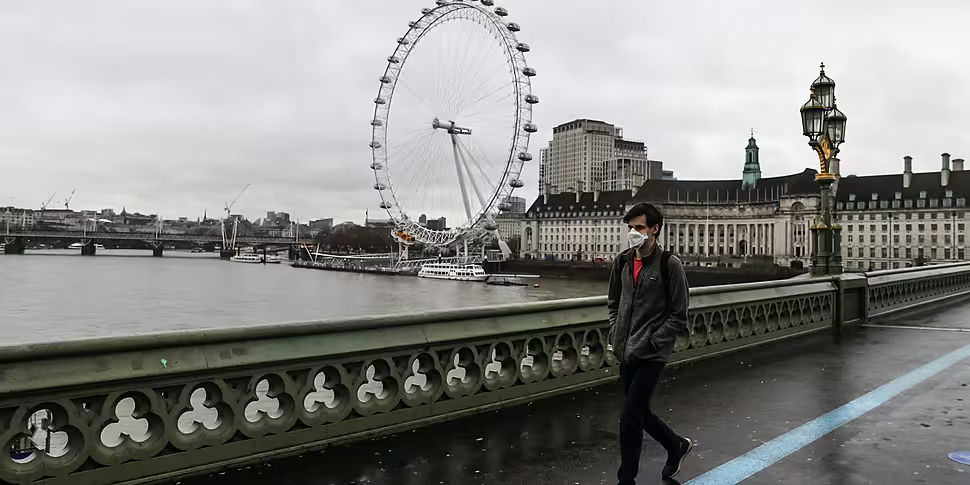Two cases of another new COVID-19 variant linked to South Africa have been identified in the UK, that country's health minister has said.
Matt Hancock said that both cases are contacts of people who travelled from South Africa over the last few weeks.
Both people with the new variant, and contacts of them, have been quarantined.
He added: "This new variant is highly concerning because it is yet more transmissible and it appears to have mutated further than the new variant that has been discovered in the UK."
The first variant of the virus - known as VUI-202012/01 - is said to be up to 70% more infectious than the original strain because it has a much bigger viral load.
Health authorities believe the new 501.V2 variant is more common in younger adults.
It also seems to have a higher viral load and as a result spreads more easily from person to person.
It is thought it could partly explain the recent surge of infections in South Africa.
Dr Susan Hopkins, from the UK government's Public Health England agency, said the new variant recently discovered in the UK, and the one found in South Africa, are "very different" and are "different mutations".
"Both of them look like they're more transmissible," she added.
"We have more evidence on the transmission for the UK variant, because we've been studying that with great detail with academic partners.
"We're still learning about the South African variant. We are pretty confident that the system we have in place will help control the spread."
While Northern Ireland's Department of Health has confirmed the presence of a new strain in the region.
It says the new variant was found in a positive test on Wednesday.
Genome analysis had been carried out on a small number of suspected cases there, producing one positive result.
The department says the variant is likely to have been present in the North "for a period of time."
It comes as a travel ban between Ireland and the UK remains in place until at least the New Year.
While special consular flights have been transporting residents home from Britain.
The Department of Foreign Affairs says a "very limited service" will continue for the duration of the travel restrictions.
However they are for "essential travel only" and not available to people living in Britain who were planning short trips to Ireland for Christmas.
They are also not available for citizens normally resident, studying or working in the UK.
Additional reporting: IRN









